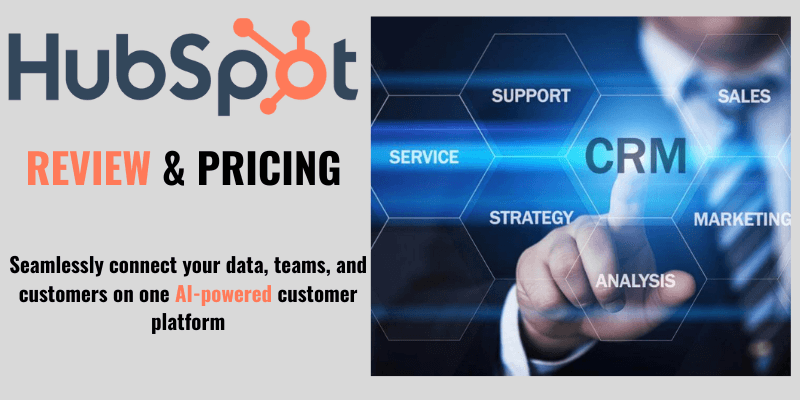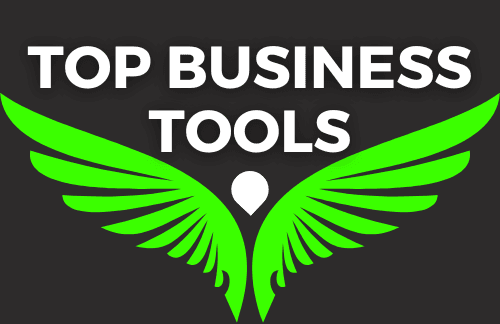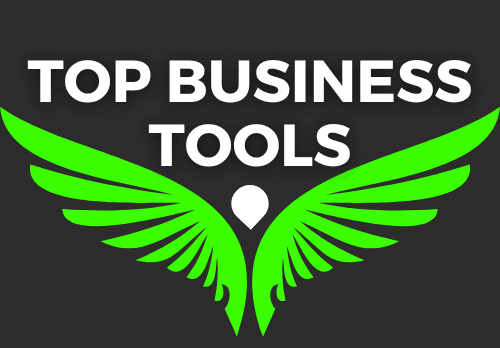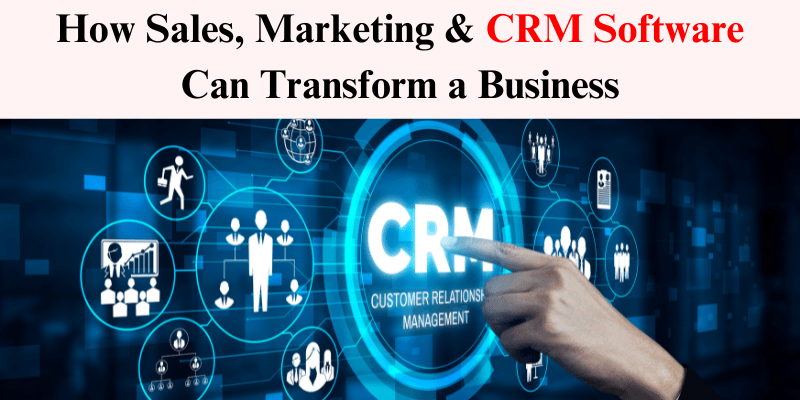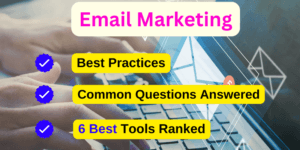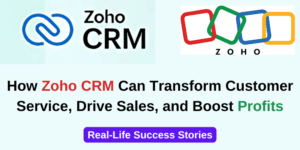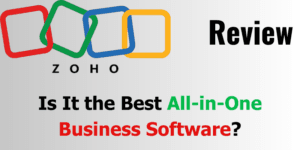In the competitive world of business, staying ahead means more than just hard work—it requires smart strategies. Sales, marketing, and CRM software have become essential for businesses looking to streamline operations, boost customer engagement, and drive growth. In this post, we’ll explore 10 reasons how these powerful tools can transform your business, providing practical examples of the significant impact they can have. Whether you’re a small business or a growing enterprise, the right software can be a game-changer in achieving your goals.
Table of Contents
Below are the ways a CRM Software Can Transform a Business:
1. Improved Customer Relationships and Retention
- Without Software: Businesses often struggle to keep track of customer interactions, leading to missed follow-ups and frustrated clients. This can result in a loss of repeat business and damaged customer relationships.
- With Software: CRM software centralizes customer data, ensuring timely follow-ups and personalized communication. For instance, a small retail business using CRM can automatically send birthday discounts to loyal customers, boosting customer satisfaction and retention.
2. Streamlined Sales Process
- Without Software: Sales teams might rely on manual processes, leading to disorganized workflows and missed opportunities. For example, a sales representative might forget to follow up on a promising lead, resulting in lost revenue.
- With Software: Sales software automates lead tracking, reminders, and follow-ups, ensuring no opportunity slips through the cracks. A business using sales software can quickly prioritize high-potential leads, closing deals faster and increasing sales efficiency.
3. Enhanced Marketing Campaigns
- Without Software: Marketing efforts can be hit or miss without proper tools to analyze data and segment audiences. A business might send out generic email blasts, leading to low engagement and wasted resources.
- With Software: Marketing software enables targeted campaigns based on customer behavior and preferences. For instance, an e-commerce business using marketing software can segment its audience by past purchases and send personalized product recommendations, leading to higher conversion rates.
4. Data-Driven Decision Making
- Without Software: Businesses operating without integrated software may struggle to gather and analyze data, making it difficult to identify trends and make informed decisions. This could result in missed opportunities for growth.
- With Software: Sales, marketing, and CRM software provide valuable insights through analytics and reporting. A company can quickly identify which marketing channels are most effective and allocate resources accordingly, leading to more efficient operations and better ROI.
5. Increased Collaboration Across Teams
- Without Software: Sales, marketing, and customer service teams may work in silos, leading to miscommunication and inefficiencies. For example, a marketing team might launch a campaign without informing the sales team, resulting in missed opportunities to close leads.
- With Software: Integrated software fosters collaboration by providing a unified platform where all teams can access and share information. This ensures that marketing efforts are aligned with sales strategies, leading to a more cohesive and effective approach to business growth.
6. Scalability and Growth
- Without Software: As a business grows, manual processes can become overwhelming, leading to bottlenecks and limiting the company’s ability to scale. A business relying on spreadsheets to manage customer data might struggle to keep up with increasing demands.
- With Software: Sales, marketing, and CRM software are designed to scale with your business, automating repetitive tasks and allowing teams to focus on strategic growth initiatives. A growing business can use these tools to expand into new markets while maintaining high levels of customer service and operational efficiency.
7. Personalized Customer Experiences
- Without Software: Businesses might offer generic customer experiences, failing to cater to individual preferences. For example, a company might send the same email content to all customers, regardless of their interests or past interactions, leading to lower engagement.
- With Software: CRM and marketing software enable businesses to personalize interactions based on customer data. A business can tailor offers and communications to match individual preferences, like sending product recommendations based on previous purchases, which increases customer satisfaction and loyalty.
8. Time and Cost Efficiency
- Without Software: Manual processes and lack of automation can be time-consuming and costly. A business might spend hours manually inputting customer data or managing marketing campaigns, diverting resources from more strategic activities.
- With Software: Automation provided by sales, marketing, and CRM software significantly reduces the time spent on repetitive tasks. For example, automating email campaigns or lead scoring can free up employees to focus on high-impact tasks, ultimately saving time and reducing operational costs.
9. Improved Lead Management
- Without Software: Leads can easily fall through the cracks without an organized system in place. A business might miss out on potential sales because it lacks a clear process for nurturing and converting leads.
- With Software: Sales software helps manage leads efficiently, tracking their progress through the sales funnel and ensuring timely follow-ups. A real estate business, for example, can use lead management tools to categorize prospects by their readiness to buy, enabling more targeted and effective follow-up strategies.
10. Enhanced Customer Support
- Without Software: Businesses might struggle to provide consistent and timely customer support, leading to unresolved issues and customer dissatisfaction. Support teams may not have access to complete customer histories, resulting in inefficient service.
- With Software: CRM software equips customer support teams with detailed customer information, enabling them to resolve issues faster and provide personalized assistance. For instance, a tech company using CRM software can track customer interactions and service requests, ensuring a seamless and satisfying support experience that enhances overall customer loyalty.
In today’s fast-paced business environment, the right tools can make all the difference. Implementing sales, marketing, and CRM software like HubSpot not only streamlines your operations but also empowers your team to work smarter, not harder. From improving customer relationships to driving data-driven decisions, HubSpot offers an all-in-one solution that can truly transform your business. Don’t let outdated processes hold you back—try HubSpot today and experience the difference it can make in accelerating your growth and success.
